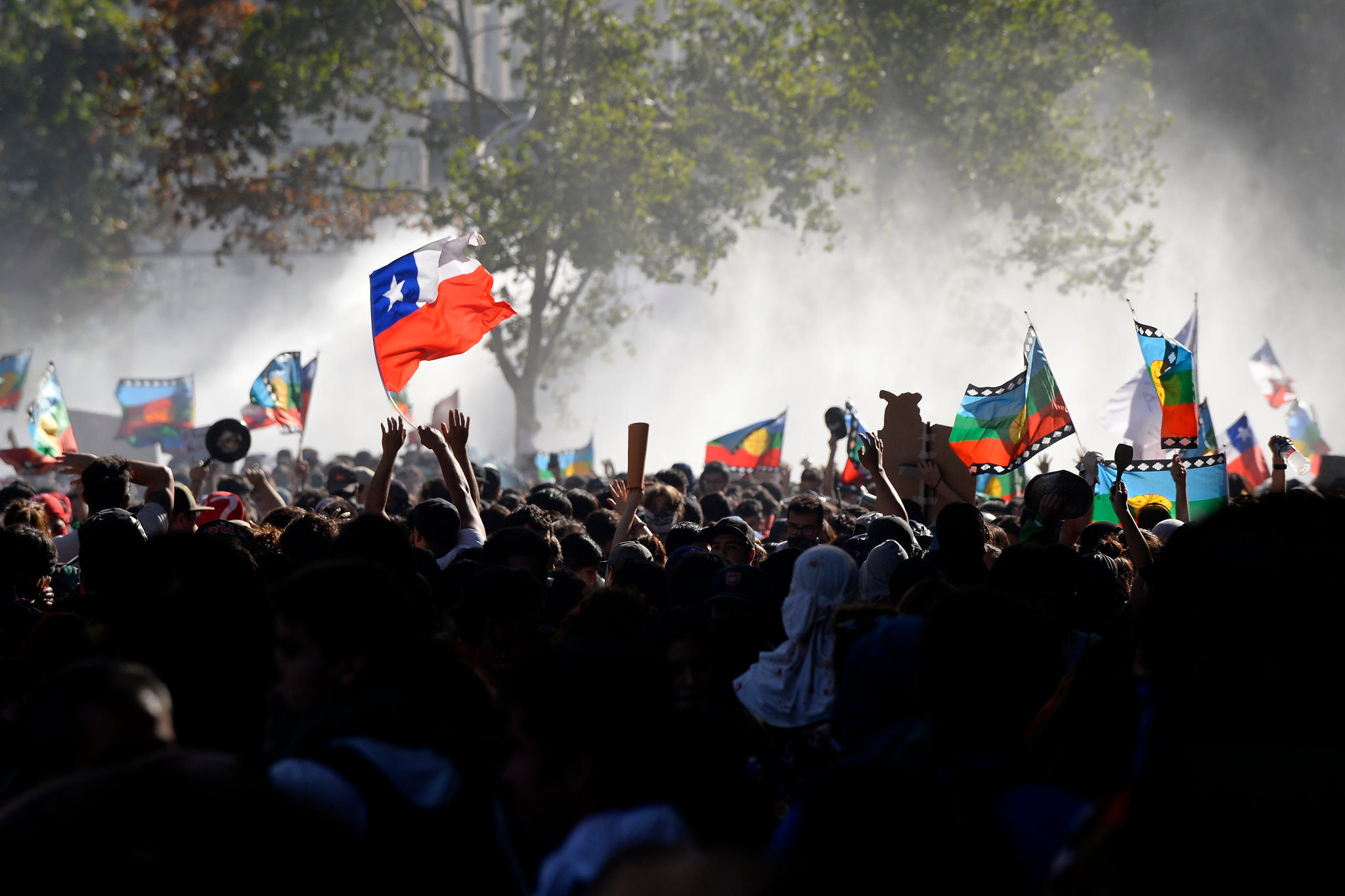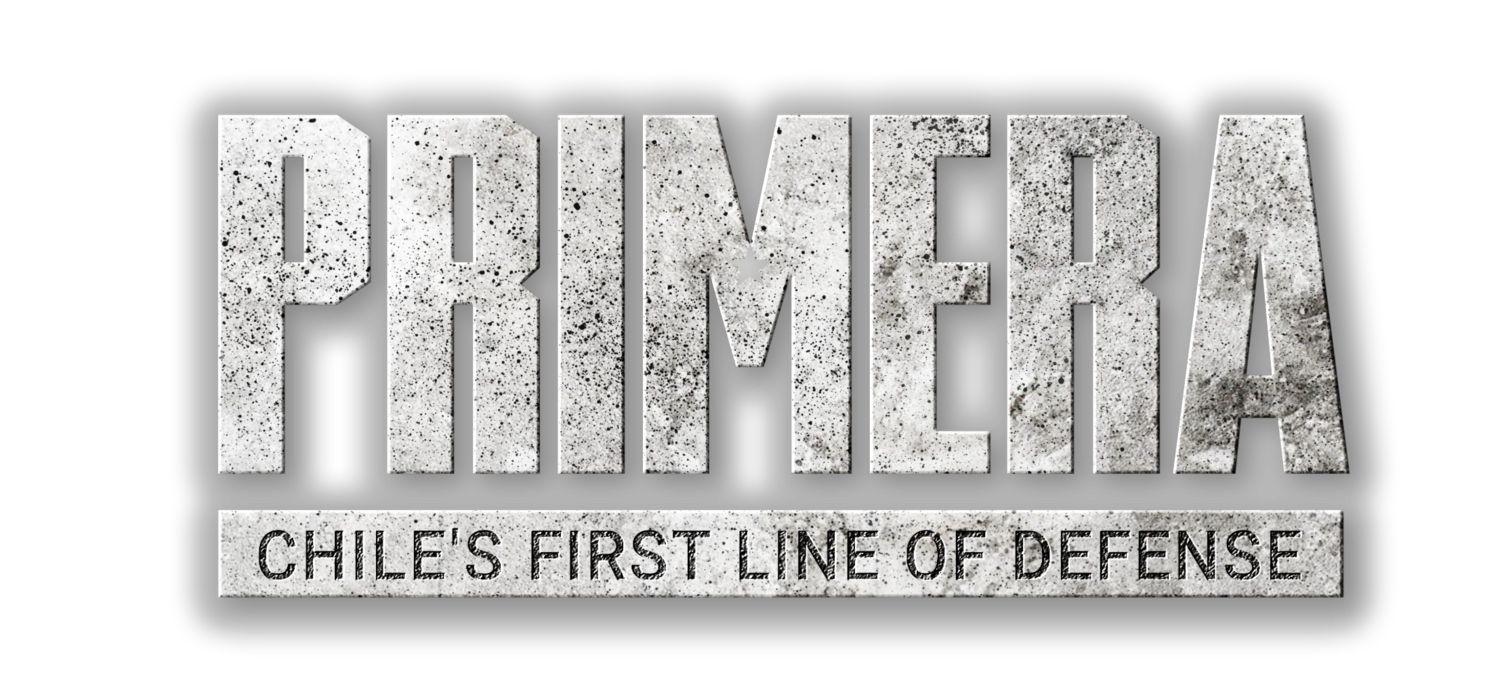
“We would bear the brunt of police attacks so they could protest in peace.”
-Felipe, story participant
Over the course of a year, PRIMERA chronicles the social uprising that evolved into a nation-wide movement, beginning with the student takeover of Santiago’s metro system and ending with the historic plebiscite that paved the way for the writing of a new constitution. The film offers an immersive look at the year-long process through the experiences of everyday Chileans who were affected by the violent police repression at the start of the social uprising.
Story Participants
Angy
A 36-year old single mother of two teenage children, Angy holds down two jobs in order to sustain her family. During the week she works as a pastry chef; on weekends she earns additional income through her artistic passion: singing folk music on Santiago’s metro system. The latter proved to be the deciding factor in inspiring Angy to immerse herself in the social uprising that began on October 18, 2019.
On November 4, 2019, Camila, a fellow street musician, was shot and detained by police for no apparent reason other than being present in the metro as students protested a 30 cents fare hike. Angy fled to her rescue, mounting an intensive campaign of musicians to free Camila from police custody. From this point on, Angy vowed to protect peaceful protesters from police repression. The arrival of Covid-19 decimated Chile’s economy, leaving Angy unemployed and without health benefits. However, she continued supporting the movement by organizing mutual aid projects including food drives and the sanitization of Santiago’s metro and bus system.
Felipe
A 40-year old professional welder and father of two children, Felipe had his life turned upside down during the second day of Chile’s social uprising. While picking up his seven-year old daughter from school he witnessed first-hand the military’s violent attack of student protesters. Felipe’s daughter asked him how come no one was stopping this. That night Felipe reached deep into his soul; he felt the need to respond to his daughter’s questions.
On the third day of what had now become daily protests, Felipe asked his fellow neighbors to hit the streets to protect the students from police repression. As a welder and someone who had experienced military service, Felipe was well versed in the science of fire and warfare tactics. The next evening, he built barricades and shields to protect peaceful demonstrators from the rubber bullets, tear gas and live ammunition that police were administering. Felipe paid a heavy price for his commitment as police began to focus their attention on his involvement in the movement.
Camila
A 27 year-old musician and graphic artist, Camila was present when Chile’s police forces attacked student protesters. After she finished her shift singing in the metro Camila joined the students in solidarity. Within an hour police arrived to quell the young demonstrators by unleashing several rounds of lead pellets, seven of which were aimed and penetrated Camila’s body. What followed was one of the most egregious violations of human rights during the uprising. After being shot, Camila was arrested and detained without any medical attention. Channeling all the strength she could muster, she was able to contact friends who came to her rescue. Camila survived and as soon as she recovered, she hit the streets once again to now stand in solidarity with the millions of everyday Chileans that had become part of the movement demanding a new constitution.
Male
A human rights attorney with twenty years of experience, Male understood very well the importance of mounting a formidable legal team to protect the young demonstrators. Within days of the social uprising, Male’s firm, the Corporation of Defense for the Rights of the People [CODEPU] took on the cases of various demonstrators that had experienced physical violence at the hands of police, including Felipe and Camila. Unbeknownst to Male at the time, CODEPU would go on to represent hundreds of families and demonstrators who were killed or injured throughout the year.




